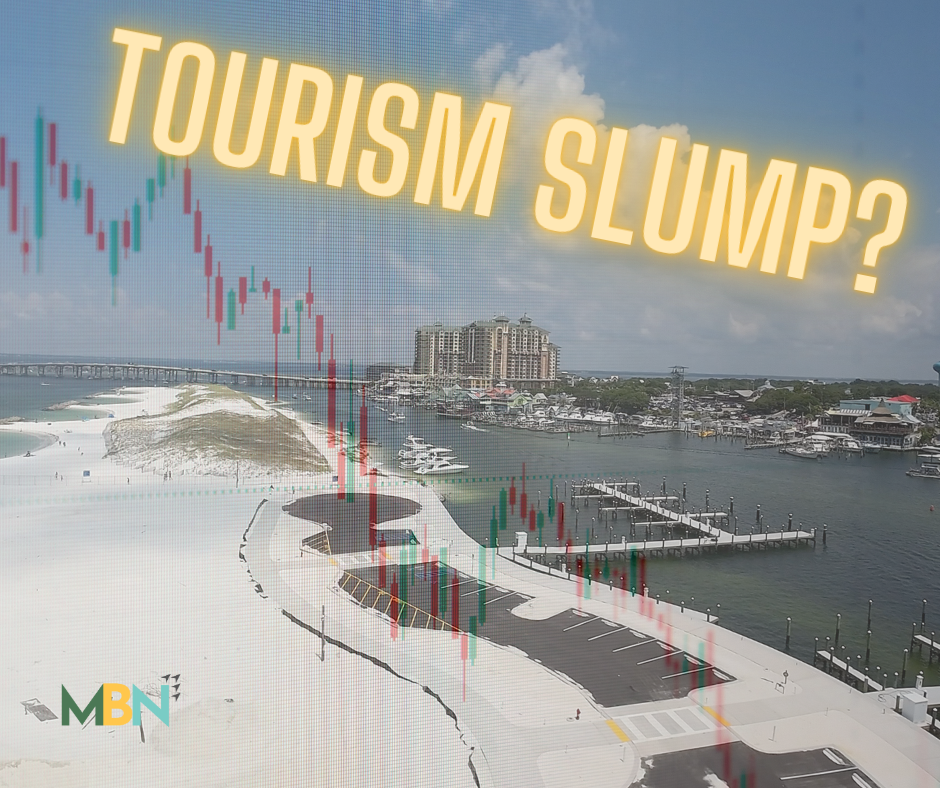
🏖️ Florida hit a tourism record in 2024 with over 143 million visitors, and projections for 2025 are even higher, according to the DeSantis administration.
📉 Despite statewide growth, Okaloosa and Walton counties have seen tourism declines due to beach access disputes and increased competition from cruises and other destinations.
🤿 Okaloosa officials aim to shift focus toward high-value, low-impact tourism, such as diving, to adapt to the changing market and sustain local economic contributions.
Earlier in May, the Ron DeSantis Administration touted the state’s new tourism record.
According to a press release from their public affairs office, more than 143 million people visited the Sunshine State in 2024 – which was a 1.7% increase over the 2023 season.
What’s more – the DeSantis Administration says the trend has continued into 2025 – More than 41 million people visited the state in the first quarter. That’s enough to put the Sunshine State on track for almost 165 million visitors.
“Florida’s tourism industry leads the nation,” said Governor Ron DeSantis. “These results are proof that our freedom-first policies work—and that Florida remains the best place to visit, work, and raise a family.”
But it’s not all hunky-dory on the Emerald Coast.
Instead, the Numbers have shown a retraction of the tourism economy in both Okaloosa and Walton counties.
In Walton County, short term vacation rental owners say their economic prospects have been devastated by the ‘Sand Wars’ set off by the state legislature’s 2018 bill that brought heavy restrictions to beach access in Walton (and only Walton) county.
Even though a law to restore state law to the ‘way it was’ before 2018, there are still plenty of fights left over beach access in Walton County to be fought.
In Okaloosa County, Tourism Development Director Jennifer Adams Kemp says the county has seen a five percent drop so far this year.
“I think it’s very competitive. You and I’ve spoken about this, you can get on a cruise ship with a family of five,” Adams explained. “Everything’s packaged and bundled, and they’re giving it away. We’re here, you know, you have your cost for your accommodations, if you go out to eat, if you get on a charter. So we’re looking to ways to try to, you know, try to get ahead of that and and make the experience more valuable.”
Several factors have made it less attractive to come to the beach in Okaloosa County for tourists who added almost three quarters of a billion dollars to the local economy last year in Adams’ estimation.
COVID brought many negative outcomes to the United States tourism industry – but one place that saw a boom was Okaloosa County. Cruise ships shuttered their ticket counters for months, other destinations essentially halted the tourism economy – but not Florida. Instead, Governor Ron DeSantis made Florida one of the few places to actively bring tourists into the area during that uncertain era.
The risk paid off for the tourism industry in the Emerald Coast and the state generally. Okaloosa County saw a sharp increase in tourism-related tax revenues.
But now that the world is back to ‘normal‘, that means the tourism titans like cruise liners and thousands of other destinations are competing for the attention and dollars that used to be a lot easier to grab because of the thinner herd competing for those travelers.
It also means explaining to the locals why the $8.8 million budget for advertising is essential for repositioning Okaloosa County to attract more exclusive clientele who will spend more money per person and use less infrastructure, such as roads and airports. After all, the fewer people come, the less congestion there is on the roads, planes and beaches.
Compare that to the money Royal Caribbean Cruise Lines alone spent on marketing, according to their financial statements: $2.125 Billion.
The manifestation of the new plan to attract more affluent, fewer travelers is currently located at a Mobile dock. Okaloosa County officials plan to sink the SS United States offshore to attract more divers to the area.
SCUBA enthusiasts tend to be more wealthy and stay off the roads and beaches.
“Diving alone is a year-round activity,” Adams Kemp explained, “people think our beaches are pretty but they can go to tropical places for a weekend for beautiful beaches, but when they come to us, they’re interested in diving and spending more time in the water than just sitting on the beach. So we’re really fine-tuning our message to offer more experiences year-round so that we can capture that adventure traveler and not just in the summertime.”
Register or login with Mid Bay News and never get another pop up on our site!